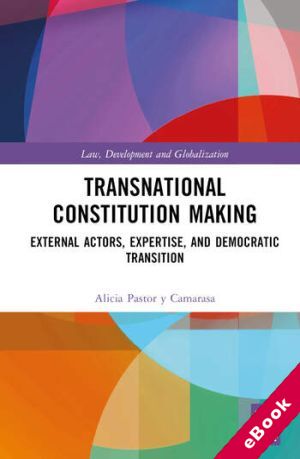
The device(s) you use to access the eBook content must be authorized with an Adobe ID before you download the product otherwise it will fail to register correctly.
For further information see https://www.wildy.com/ebook-formats
Once the order is confirmed an automated e-mail will be sent to you to allow you to download the eBook.
All eBooks are supplied firm sale and cannot be returned. If you believe there is a fault with your eBook then contact us on ebooks@wildy.com and we will help in resolving the issue. This does not affect your statutory rights.
This book examines the largely neglected, but crucial role of transnational actors in democratic constitution-making.
The writing or rewriting of constitutions is usually a key moment in democratic transitions. But how exactly does this take place? Most contemporary comparative constitutional literature draws on the concept of constituent power – the power of the people – to address this moment. But what this overlooks, this book argues, is the important role of external, transnational, actors who tend to play a crucial role in the process. Drawing on sociolegal methodologies, but informed by new legal realism, this book develops a new theoretical framework for examining the involvement of such actors in constitution-making. Empirically grounded, the book uncovers a more comprehensive picture of how constitution-making unfolds on the ground. Illuminating the power dynamics at play during the legal process, it reveals not only the wide range of external actors involved, but also the continuity between decolonisation and post-Cold War constitution-making.
This book, the first to provide an in-depth examination of external actor involvement in constitution-making, will appeal to scholars of constitutional law, sociolegal studies, law and development, and transitional justice.